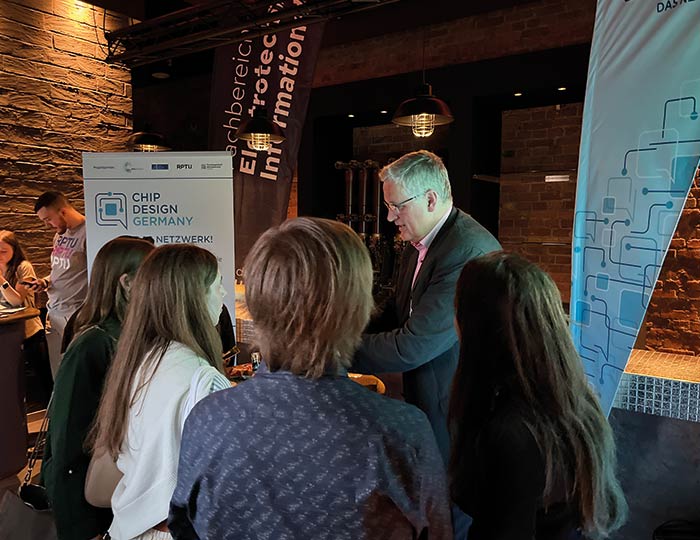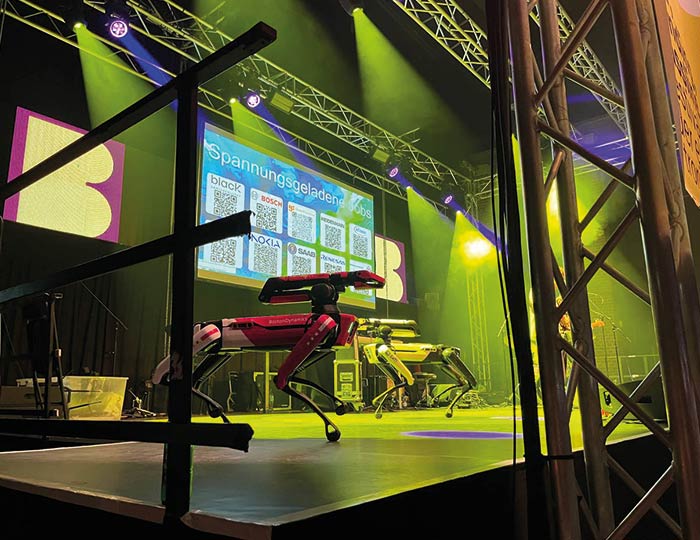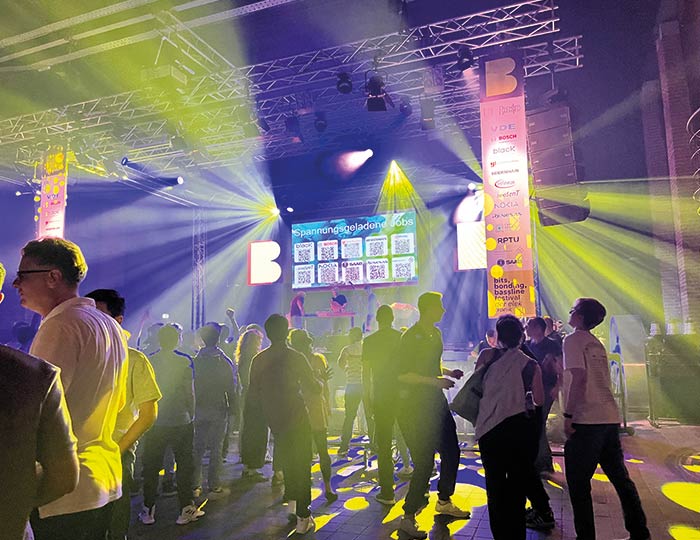RealIZM blog series »Microelectronic Trends« – Part 3
Powerful chips and microelectronic components are the hardware backbone of digitalization in business and society at large. Chip design is essential for innovations for many applications like autonomous driving, artificial intelligence (AI), or 6G. At the same time, chip design plays a crucial role in the global microelectronics supply chain.
The companies and countries at the forefront of microelectronic system design enjoy many economic and strategic advantages. They innovate, generate jobs, and easily hold their technological lead.
RealIZM has met Dr. Andreas Brüning to speak about the relevance of chip design for Germany’s technological future. As Senior Expert for the design of microelectronic systems at the Research Fab Microelectronics Germany (FMD), he is the head of the new network »Chipdesign Germany«.
»Chipdesign Germany«: A network for technological sovereignty in Germany
»The German semiconductor market is very diversified. There are several large and numerous small companies with a very broad technological base. If we want to strengthen Germany as a go-to-place for microelectronics and maintain our technological sovereignty and security, we have to bring together the different interests, activities, and relevant players in education, research, and industry. And that also means reconciling their interests«, says Dr. Andreas Brüning when explaining the rationale for founding the »Chipdesign Germany« network.
This network for chip design in Germany has four partners: edacentrum GmbH (EDAC), the Research Fab Microelectronics Germany (FMD), the Rhineland-Palatinate Technical University of Kaiserslautern-Landau (RPTU) and Leibniz University of Hannover (LUH). It is supported by the Federal Ministry of Education and Research (BMBF) as part of the »Microelectronics Design Initiative«. Its overarching goal is to strengthen the design of innovative chip solutions as a key skill of our economy and to close any gaps in design skills in Germany and Europe in the long term.
The future of chip design: All about communication and innovation
»We want to promote the sharing of ideas about shaping tomorrow’s chip design«, says Brüning about the aims of the alliance. »Instead of competing at a product level, we want to make the methods for developing chips more effective overall.« He emphasizes that chip design is an umbrella term that goes beyond circuit design. Forward-looking business models or the development of energy-efficient and environmentally friendly electronic products are similarly decisive factors that shape chip design.
The more powerful and complex electronic systems become, the more energy they tend to consume. The course for a greener product is already set during the initial design phase. Brüning stresses that the people responsible for chip design play an important role in making electronic products energy-efficient, even if data rates keep increasing: »Chip design has a massive influence on how reliable, durable, and ecologically sustainable electronic products are.«
The new network pursues a total of twelve goals. These include promoting the visibility of German research in the field of chip design in politics and society, intensifying science communication about the importance of microelectronics for society and industry and generating enthusiasm for microelectronics-related degree courses at an early stage.
»Chipdesign Germany« university alliance: A rich choice of degree courses and specialization options
»There isn’t just one degree option to start a career in chip design after graduation«, Brüning explains. »Different fields of study, such as electrical engineering, computer engineering, or microelectronics, give you the necessary foundations and specializations to be successful in this innovative field. Chip designers need different skills.«
Most chip designers come from an electrical engineering background, although they can specialize in areas ranging from communications engineering to energy technology. Many have also studied physics, as knowledge of physics is important for photonic and technical applications. There are also chip designers with a background in biology, especially in medical technology, where microelectronics is becoming increasingly important.
In order to bring the various training paths closer together, more than 62 universities and universities of applied sciences have joined together in a university alliance on the initiative of the »Chipdesign Germany« network. In total, 150 chairs in the field of microelectronics are on board. »Many of these are small and have only a few graduates, so it is important to get this group to network«, explains Brüning.
He also points out that professors in Germany have the freedom to choose their own teaching content and attract students. Nevertheless, the subject of circuit and chip design often plays a subordinate role in the curriculum. The complexity and possibilities in the field of microelectronics have increased significantly in recent years. For this reason, eight specialist groups have been formed within the University Alliance to deal with topics such as digital design, analog design, and test integration.
Networking for the future: First business festival for electronics and IT in Dresden
Development processes in the technology sector are very complex and demanding. Therefore, highly specialized employees are needed who have experience with process design kits and development tools. Their jobs can encompass many different roles, including system architects, digital designers, analog specialists, or back-end developers. Brüning points out the need to bring together students from the various degree programs to promote communication in the future-oriented professions in microelectronics and social issues such as climate protection.
Working with various industry partners, the VDE and the Technical University of Dresden invited students from all over Germany to the first German business festival for electronics, information technology, and computer science »bits, bonding, bassline« in Dresden in the summer of 2024. At the festival, students and young professionals were able to find out about the wide range of career options and meet companies from the fields of semiconductor technology, circuit design, and information technology. The »Chipdesign Germany« network was also on site with its own booth. The festival will take place again on May 16, 2025 at Stromwerk Dresden.
The Festival for Electronics offers a unique combination of live music and career opportunities for students. | © Fraunhofer Mikroelektronik
From university to industry: further training in microelectronics
Microelectronics is a fascinating and constantly growing professional field. Prospective chip designers should be flexible and willing to switch to other areas during their career and deal with topics from different business areas such as photonic systems, radio frequency (RF), or electromobility and battery management.
From school to career: microelectronics for the next generation
According to Brüning, promoting young talent must begin before they even go to university: »It is essential to get students excited about microelectronics and chip design in particular at an early stage so that they can turn their ideas into concrete solutions.«
In order to arouse interest in microelectronics-related courses of study while still at school, the »Chipdesign Germany« network plans to collaborate with technology competitions like the »Invent-a-Chip« competition for school students. This competition encourages young people to develop creative ideas for better solutions in the field of microelectronics.
It is important to take away young people’s fear of these complex topics. Although microelectronics requires knowledge of mathematics and physics, understanding the basic principles opens up great career opportunities«, explains Brüning. »In teams, you can work together to develop innovative solutions in many applications.
– Dr. Andreas Brüning
RealIZM blog series »Microelectronic Trends« – Part 1 & 2
Heterogeneous Integration: The future of semiconductor technology
The Chiplet Center of Excellence sets new standards for the automotive industry








Add comment